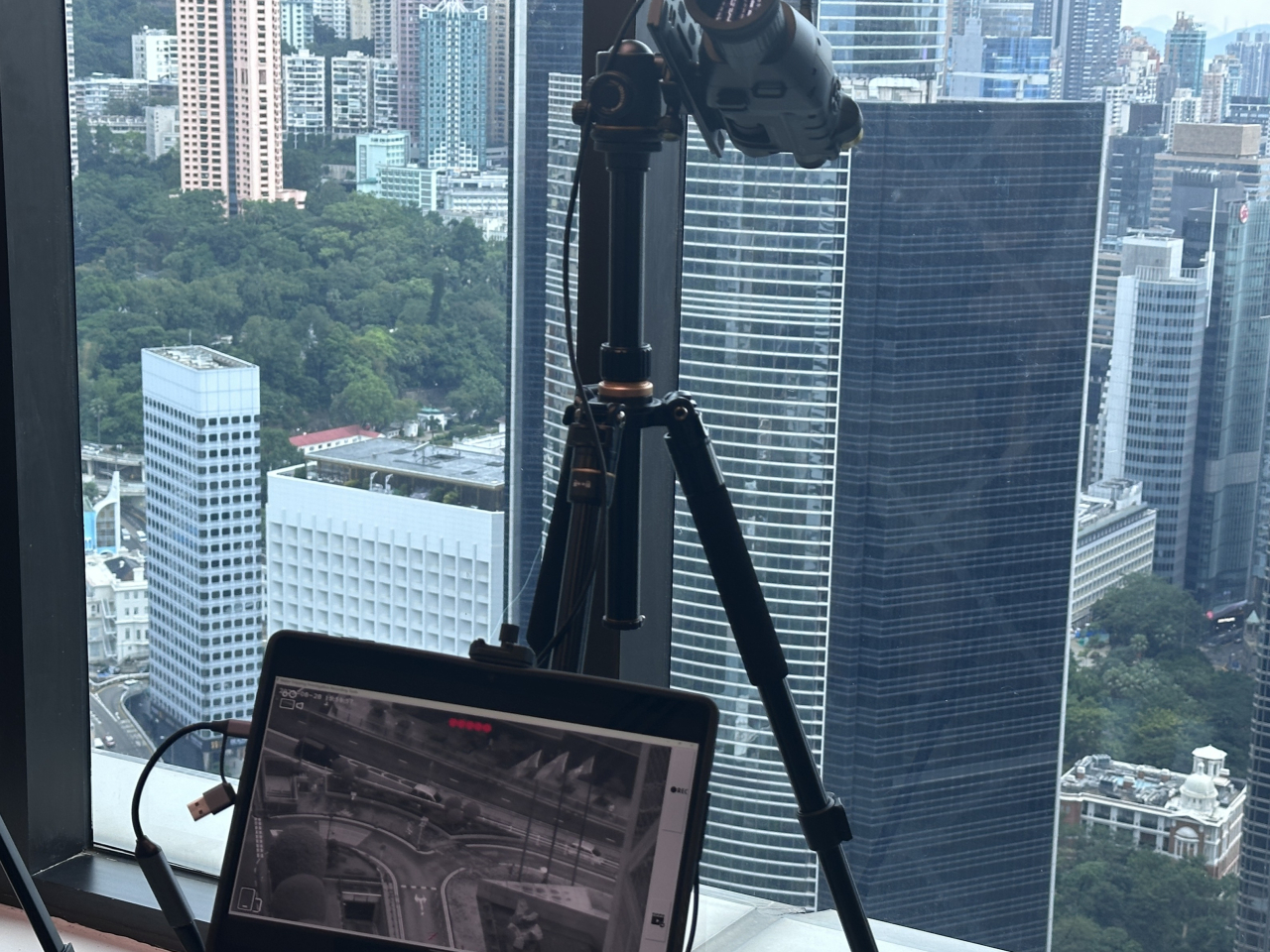The Food and Environmental Hygiene Department said on Thursday its deployment of night vision cameras has been effective in aiding enforcement action over dripping air conditioners.
The department said it has observed a rising trend in complaints regarding dripping air conditioners in recent years, with almost 19,000 complaints received in the first seven months of this year.
Since May, it has been using infrared night cameras – costing a total of HK$1.3 million.
Nineteen of them can detect dripping from up to 20 storeys high in a low-light environment while another 19 more advanced models can observe offences at twice that height.
Assistant director Wan Chi-shun said that as of Sunday, the department has addressed 5,200 cases across the territory this year.
“Roughly speaking, because... of the night vision cameras and also our proactive deployment of manpower, we handle at least double the cases in comparison with previous few years,” he said.
He noted that the department has taken a proactive approach to tackling the issue this year instead of, as in the past, merely reacting to public complaints.
The department has identified, for example, 30 black spots where significant water dripping affects people queuing up for buses or minibuses, Wan added.
“We adopted a door-to-door visit [approach]. At least a weekly visit was made to such black spots," he said.
"And we take proactive enforcement action when we observe that there are dripping air conditioners.”
One such example involved about 270 air conditioners dripping along a section of Nathan Road in May, said district environmental hygiene superintendent Chan Kar-chun.
Through issuing nuisance notices to home owners and strengthening publicity efforts with support from district councilors, Home Affairs Department staff and care teams, the situation had improved significantly by early July, he said.
The Food and Environmental Hygiene Department hopes to start using a third-generation night vision camera next year, which will be able to identify the exact floor causing the issue through artificial intelligence.





